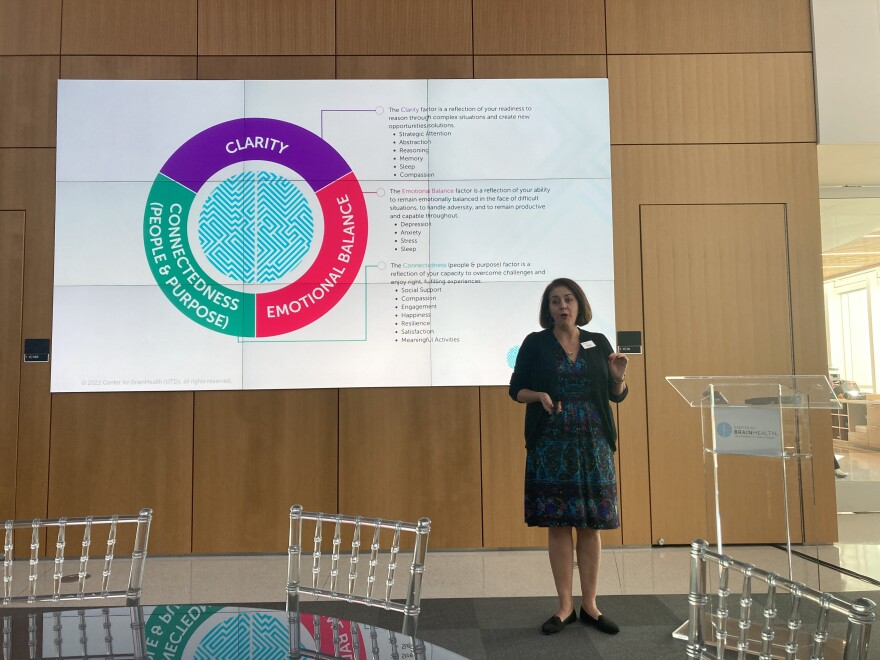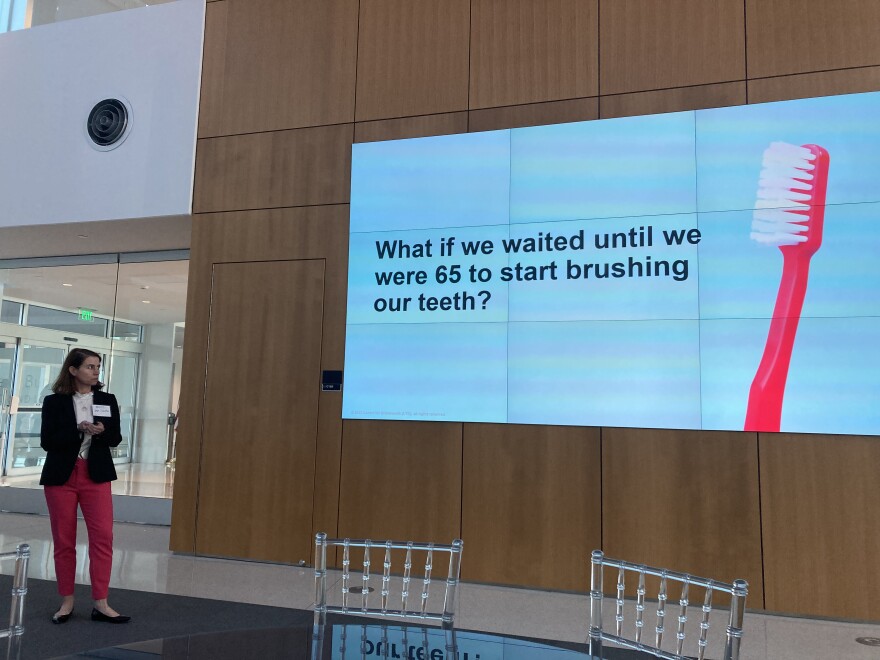The Center for BrainHealth at UT Dallas unveiled a revolutionary imaging center to measure healthy brain markers. The Sammons BrainHealth Imaging Center will use MRI to map people’s brain health over time and identify what neural markers indicate brain improvement.
Chief Director of the Center for BrainHealth Sandi Chapman said it’s all part of a project called the BrainHealth Index. It’s an online telehealth-like tool that helps people be proactive about healthy brains habits.
“Just like your muscles are stronger and you feel more fit, or your cholesterol’s down, what if we could have similar metrics for the brain getting stronger?” Chapman said.
The BrainHealth Index measures factors like social support, cognition, and mood through an online portal. The program then offers coaching and tips while tracking brain health every six months. Instead of measuring things like memory decline and dementia, Chapman said the center is focused on giving people a baseline health assessment and manageable, daily ways to improve brain function.

Small changes like sleep and social connection can improve brain health
Dr. Geoffrey Ling works with the center and is also a neurology professor at Johns Hopkins University. He said small changes can make all the difference.
“The fact of the matter is, is we know there are interventions that are important,” Ling said. “A lot of those interventions are things that everybody can do. It is not a pill, it’s not surgery, it’s not some magic elixir. If we chose to do things to preserve the health of our brain, we can, and it should be based on solid science.”
He encourages people to start small: get more sleep, eliminate multi-tasking, and build social connections.
“Every person that we know, their brain is what makes them who they are,” Ling said. “And to lose that is to basically mean they’ve lost who they are.”

Former Dallas Mayor Tom Leppert is a co-chair of the project and said everyone should be thinking about their brain health, not just older adults.
“If we don’t address some of the real challenges—dementia, Alzheimer’s being two of those—then we’re going to have a societal cost that we’re not gonna be able to manage,” he said.
Chapman hopes tools like the BrainHealth Index become as commonplace as smart devices tracking fitness and nutrition.
“We want people to really become empowered to take agency in changing their brain,” she said. “It’s what’s really going to help us flourish in life, our brain skills.”
Got a tip? Email Elena Rivera at erivera@kera.org. You can follow Elena on Twitter @elenaiswriting.
KERA News is made possible through the generosity of our members. If you find this reporting valuable, consider making a tax-deductible gift today. Thank you.


